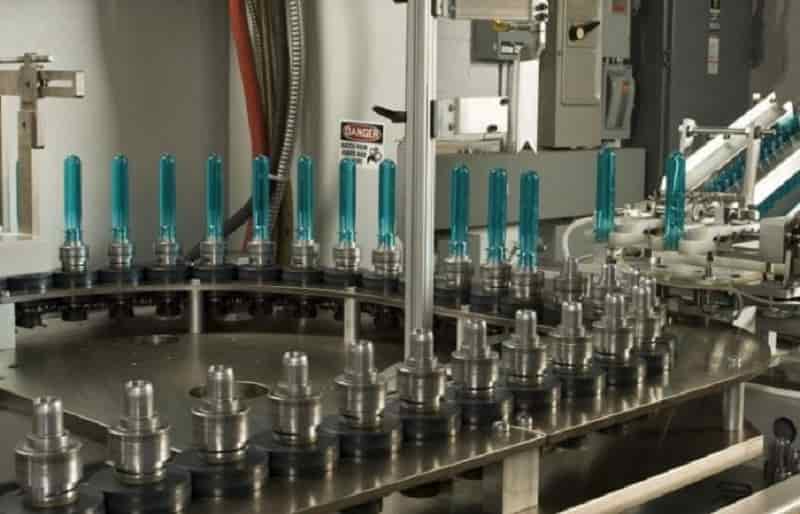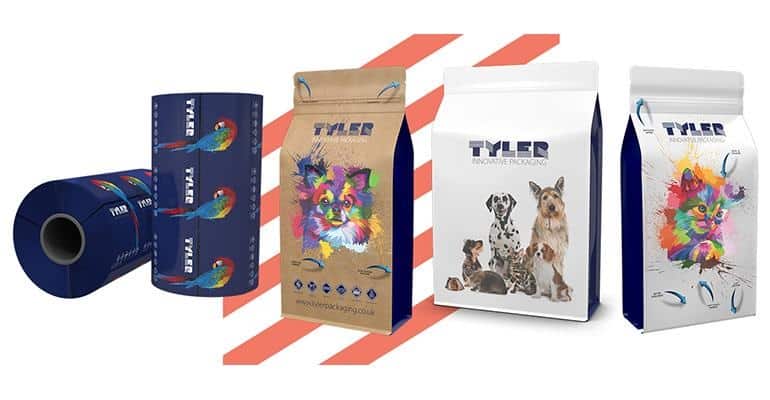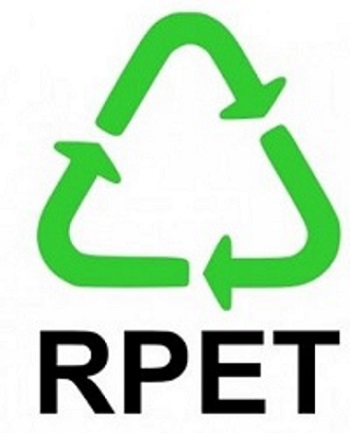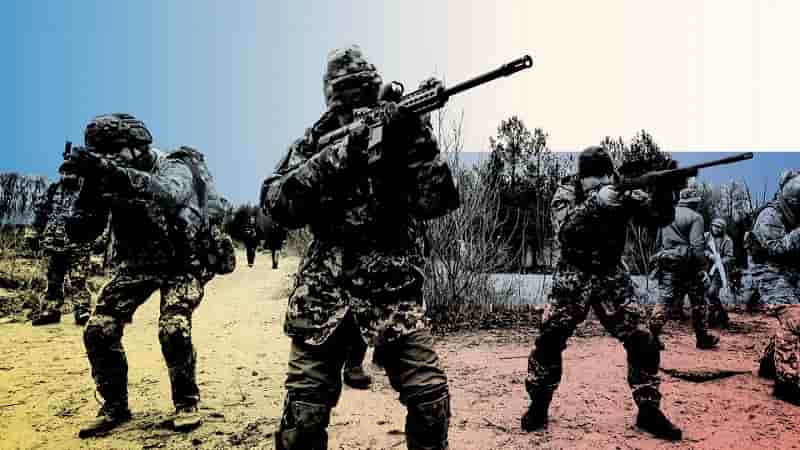Automotive-sector – PET-stretch-blow 11-03-2022 - Arhive
Automotive-sector – PET-stretch-blow
-New plant for polypropylene specialties for the automotive sector, to meet local demand.
The Spanish petrochemical group Repsol and the Luxembourg-based Ravago join forces to build a new plant for the production of mainly polypropylene-based compounds near Tangier, a Moroccan port city.
The production capacity, in the intentions of the two partners equal to 18,500 tons per year, will be destined for the local market, in particular for applications in the automotive, interior and bodywork components sector.
The plant, which is expected to go into operation in the middle of next year, will be managed by Ravago, while the polypropylene, the polymer behind the compounds, will come from Repsol plants in Spain and Portugal. Automotive-sector – PET-stretch-blow
The project is supported by the Moroccan Ministry of Industry and is supported by the main OEMs present in the country, such as Renault and Stellantis. Under the agreement, Repsol will market most of the Moroccan plant’s production under its own brands Isplen and Impacto, while Ravago will produce polyamide (PA), PC-ABS and PBT alloys for the automotive industry.
Repsol operates with three petrochemical poles in the Iberian Peninsula (in Tarragona, Puertollano and Sines) and with a plant specialized in polypropylene compounding in Monzon, Aragon, recently the subject of an investment of 4.5 million euros to increase its production capacities. Through this operation, it expands its presence in North Africa. Automotive-sector – PET-stretch-blow

-Uniloy enters PET stretch blow market
Blow molding machinery company Uniloy Inc. has acquired the assets of the defunct Amsler Equipment Inc. in Vaughan, Ontario.
The deal apparently ends a tumultuous period for Amsler, which shut down last year as a result of the liquidation of Niigon Machines Ltd.
With the purchase, Tecumseh, Mich.-based Uniloy enters the PET stretch blow molding (SBM) machine market and will provide support for Amsler equipment going forward under the new Uniloy SBM product line. Automotive-sector – PET-stretch-blow
“We saw a significant opportunity to support the customers left without service and spare parts when Amsler ceased operations,” Uniloy CEO Brian Marston said in an email. “In addition to offering aftermarket support, Uniloy has plans to offer Uniloy SBM machines in the future.”
Founded in 1994, Amsler built all-electric linear PET stretch blow molding equipment ranging from one to six cavities with outputs of 1,500-10,000 bottles per hour.
Uniloy acquired all technical documents, machine designs, service records, spare parts, tooling and drawings as well as other materials, Marston said.
“Complete turnkey solutions have been a mainstay for Uniloy, and Uniloy has been manufacturing PET molds for many years. This product line will allow us to reach new customers,” Marston added.
Amsler had been quietly acquired by Benpac Holding Inc., a U.S. affiliate of Stans, Switzerland-based Benpac Group., in January 2020 as part of a strategy to bring together leading packaging supply chain companies as a one-stop shop.
In June 2021, Benpac moved Amsler from Bolton, Ontario, to a rented facility in Vaughan that was owned by Niigon Machines. At the time, Benpac was considering acquiring Niigon. Automotive-sector – PET-stretch-blow
That deal never materialized, and Niigon, which was founded by Plastics Hall of Famer Robert Schad, declared bankruptcy Sept. 24. Amsler was locked out of the Vaughan plant for nonpayment of rent to Niigon.
Niigon took possession of the Amsler assets after they were left behind by the company’s owner, according to a March 8 news release from Uniloy.
Terms of the purchase, which occurred Feb. 9, were not disclosed.

-UK and the Plastic Packaging Tax: A Flex-Pack View
Tyler Packaging discusses the company’s commitment to sustainable flexible packaging that will be tested by the impending Plastic Packaging Tax.
Celebrating its 40th year in 2022, UK-based Tyler Packaging provides flexible packaging to a range of market. These include food, pet food, health and leisure, sports nutrition, building and chemical, and lawn and garden. Tyler offers a comprehensive range of films, premade bags, pouches, and sacks that encompass the most up-to-date production and materials technology.
In today’s environment that means sustainable packaging, which for Tyler is innovative, sustainably optimized flexible packaging. It’s a commitment the company has made since the beginning. Automotive-sector – PET-stretch-blow
“We have continuously worked to advance sustainable packaging solutions, though never has this been more important than in the last decade,” says Adam Kay, sales director. “Sustainable solutions have grown significantly and the conversation around recyclable and compostable packaging has grown dramatically. Companies are now truly focused on their impact on the environment.”
Over the past two to three years those materials comprise recyclable monolayer plastic packaging and compostable packaging sold to customers globally, according to Kay.
Even an ocean apart, Kay feels that UK and US markets and trends are much alike.
“The focus in the UK is sustainability, as flexible packaging doesn’t require as much energy consumption as many other packaging solutions,” he notes. “The UK and US markets are very similar, with consumer convenience driving the market forward.”
Those similarities are also essentially true for the regulatory landscape for packaging, according to Kay.
But there is an exception, and it’s a notable one: the Plastic Packaging Tax (PPT) that goes into effect in the UK on April 1. Automotive-sector – PET-stretch-blow
Compared to the US where just 9% of plastics are recycled, the UK boasts a robust 43.8% plastic packaging waste recycling rate. However, the flip-side reality of that is the 56% that’s wasted, which led to the creation of the PPT.
The challenge of The Plastic Packaging Tax.
As explained at the Pinsent Masons website, the PPT is “a new tax on plastic packaging manufactured in, or imported into the UK, that does not contain at least 30% recycled plastic is being introduced from 1 April 2022. The rate of tax will be £200 per metric tonne of plastic packaging. [Ed Note: That’s the equivalent of $262 for each 1.1 US ton.]
“The PPT is an environmental tax designed to provide a financial incentive for businesses to use recycled plastic in the manufacture of plastic packaging. The government envisages this will create greater demand for recycled plastic, stimulating increased levels of recycling of plastic waste and diverting it away from landfill or incineration.”

Antonello Ciotti was recently unveiled as the new President of PETCORE Europe – an association that represents companies in the PET value chain. This announcement came in light of challenging market conditions for PET – from ever-present sustainability issues, to concerning price rises.
In this context, we spoke with Ciotti to learn more about his ambitions for his new role, as well as potential solutions to the challenges he’ll be confronting.
To get us started, could you tell us about your background and break down the key responsibilities of your new role? Automotive-sector – PET-stretch-blow
I am a chemical engineer by profession. Born and bred in Rome, I am a passionate supporter of AC Roma – the wolves!
My career has been mainly with the Dow Chemical Company. With Dow, I held several senior positions in the plastic sector across Europe. Since the setup of Equipolymers in 2004, a JV between Dow and Equate, my role was Global Commercial Director for PET and PTA.
As Petcore chairman I see my role in strengthening the links between all members to increase the synergies and make our impact more powerful and central to the EU debate.
What are the key objectives of this role? Have you identified any major marketplace challenges that you’ll be confronting?
I see Petcore communicating at three different levels: the EU institutions (both centrally in Brussels but also in the most prominent Members States), to the Petcore associates, and to the market.
The number one conversation today – from policymakers to board rooms to family dinner tables – is sustainability. PET is recyclable and made to be remade, and PET packaging is more sustainable than alternatives like glass or aluminium which have higher environmental footprints.
The PET industry needs to align our communications, as the main challenges are coming from how we as a society manage the ecological transition to a sustainable future. While we all agree with what needs to be achieved, we struggle with the “how” as some of these steps are driven more by ideology than proven technical evaluations. Automotive-sector – PET-stretch-blow
The price gap between rPET and PET continues to widen. What are your overall thoughts on the effects that this could have on sustainable packaging efforts?
The issue here is supply. Administrative delays by the Commission are preventing investment around PET recycling. While one arm of the commission demands more recycled content, the other arm has delayed food contact approval.

-Rise, as War in Ukraine and Sanctions Take Their Toll
Polypropylene (PP) resin prices rose as much as a nickel last week, and PP contracts are poised to jump by double digits. Automotive-sector – PET-stretch-blow
Strong demand, limited supplies, and soaring energy feedstock costs last week led to a predictable outcome: Extremely active spot resin markets and significantly higher prices. Aggressive buying from both processors and resellers brought the highest volume of completed transactions at the PlasticsExchange trading desk since May.
Russian invasion threatens flow of key energy and derivative supplies in Europe
The surge in demand was largely inspired by the Russian invasion of Ukraine, writes the PlasticsExchange in its weekly Market Update. The “special military operation,” as Putin characterizes it, potentially could lead to a much larger conflict and threaten the flow of key energy and derivative supplies in Europe and around the world, putting added strain on an already delicate supply chain. The mad scramble to procure both polyethylene (PE) and polypropylene (PP) resins here in North America, where prices had already been on a recent upswing, added more fuel to the fire and pushed sellers to the sidelines, as they anticipate higher prices ahead, further restricting prompt resin availability, writes the PlasticsExchange.
The market was already tightly supplied, with few prime railcars offered into the spot market. PE producers positioned for their third attempt to implement their current price increase, which averages $0.04/lb, but could be larger as increases are stacked on the table for March and beyond. The flow of off-grade PP railcars was fairly steady, but they were gobbled up at ever increasing prices all week long. Although the month has barely begun, PP contracts are already poised to jump double digits as spot PGP monomer prices have accelerated to the upside, eerily reminiscent of the massive weather-induced rally exactly a year ago. Automotive-sector – PET-stretch-blow

-LyondellBasell to cut ties with Russian state-owned entities
LyondellBasell Industries will turn down new business opportunities with Russian state-owned entities, and plans to discontinue existing business with those entities as well, said Plasticsnews. Automotive-sector – PET-stretch-blow
Houston-based LyondellBasell also is donating 200,000 euros (USD220,000) to relief efforts in Ukraine. “We are closely monitoring the Russia-Ukraine situation as it continues to evolve,” officials said in a statement sent to Plastics News. “LyondellBasell condemns the unprovoked attacks on Ukraine, and we are taking action to support the humanitarian efforts as a result of this conflict.
“In addition to abiding by all sanctions, effective immediately, LyondellBasell will not enter into any new business transactions or relationships, and to the extent legally possible, intends to discontinue business relationships with Russian state-owned entities. We are in the process of assessing how this will impact our operations, including feedstocks, utilities, supply chain providers, and customers.”
Officials added that although LyondellBasell doesn’t have operations in Ukraine, the firm has seen the rising number of refugees and dislocated families and is supporting the humanitarian crisis through its global corporate citizenship program, Advancing Good.
Half of LyondellBasell’s donation will go to the United Nations High Commissioner for Refugees to provide shelter, emergency relief items, cash assistance and mental health support. The other half will go to the International Medical Corps to support their mobile medical units programs. Automotive-sector – PET-stretch-blow
LyondellBasell ranks as a global leader in production of polyethylene and polypropylene resins and as North America’s largest plastics compounder. The firm has operations in more than 100 countries — including Russian offices in Moscow and Togliatti — and posted sales of USD27.7 bn in 2020.

Automotive-sector – PET-stretch-blow
